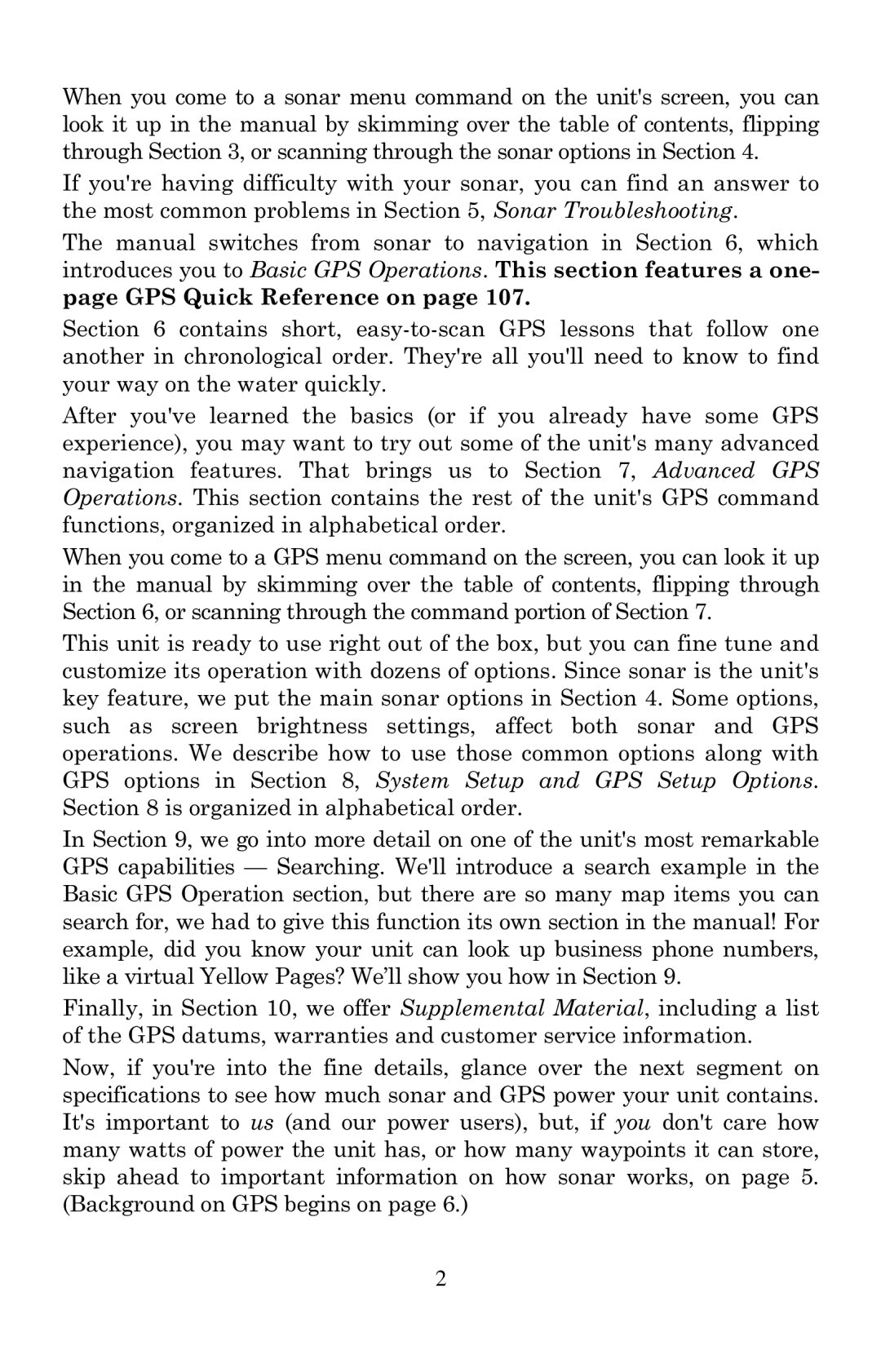When you come to a sonar menu command on the unit's screen, you can look it up in the manual by skimming over the table of contents, flipping through Section 3, or scanning through the sonar options in Section 4.
If you're having difficulty with your sonar, you can find an answer to the most common problems in Section 5, Sonar Troubleshooting.
The manual switches from sonar to navigation in Section 6, which introduces you to Basic GPS Operations. This section features a one- page GPS Quick Reference on page 107.
Section 6 contains short,
After you've learned the basics (or if you already have some GPS experience), you may want to try out some of the unit's many advanced navigation features. That brings us to Section 7, Advanced GPS Operations. This section contains the rest of the unit's GPS command functions, organized in alphabetical order.
When you come to a GPS menu command on the screen, you can look it up in the manual by skimming over the table of contents, flipping through Section 6, or scanning through the command portion of Section 7.
This unit is ready to use right out of the box, but you can fine tune and customize its operation with dozens of options. Since sonar is the unit's key feature, we put the main sonar options in Section 4. Some options, such as screen brightness settings, affect both sonar and GPS operations. We describe how to use those common options along with GPS options in Section 8, System Setup and GPS Setup Options. Section 8 is organized in alphabetical order.
In Section 9, we go into more detail on one of the unit's most remarkable GPS capabilities — Searching. We'll introduce a search example in the Basic GPS Operation section, but there are so many map items you can search for, we had to give this function its own section in the manual! For example, did you know your unit can look up business phone numbers, like a virtual Yellow Pages? We’ll show you how in Section 9.
Finally, in Section 10, we offer Supplemental Material, including a list of the GPS datums, warranties and customer service information.
Now, if you're into the fine details, glance over the next segment on specifications to see how much sonar and GPS power your unit contains. It's important to us (and our power users), but, if you don't care how many watts of power the unit has, or how many waypoints it can store, skip ahead to important information on how sonar works, on page 5. (Background on GPS begins on page 6.)
2
